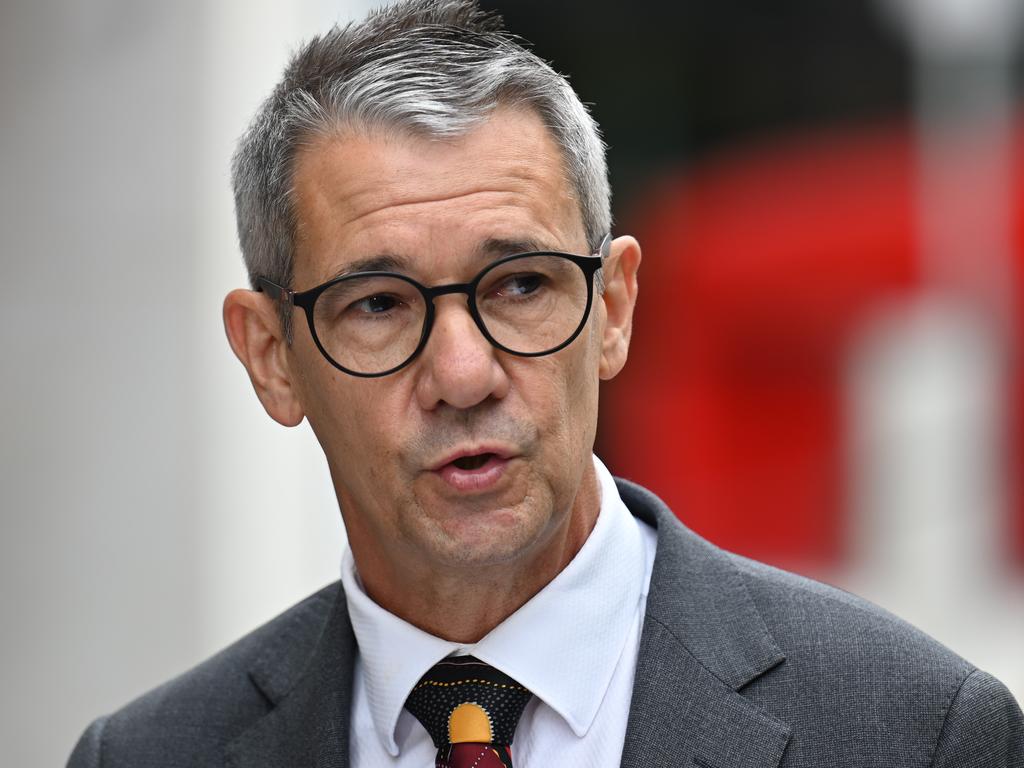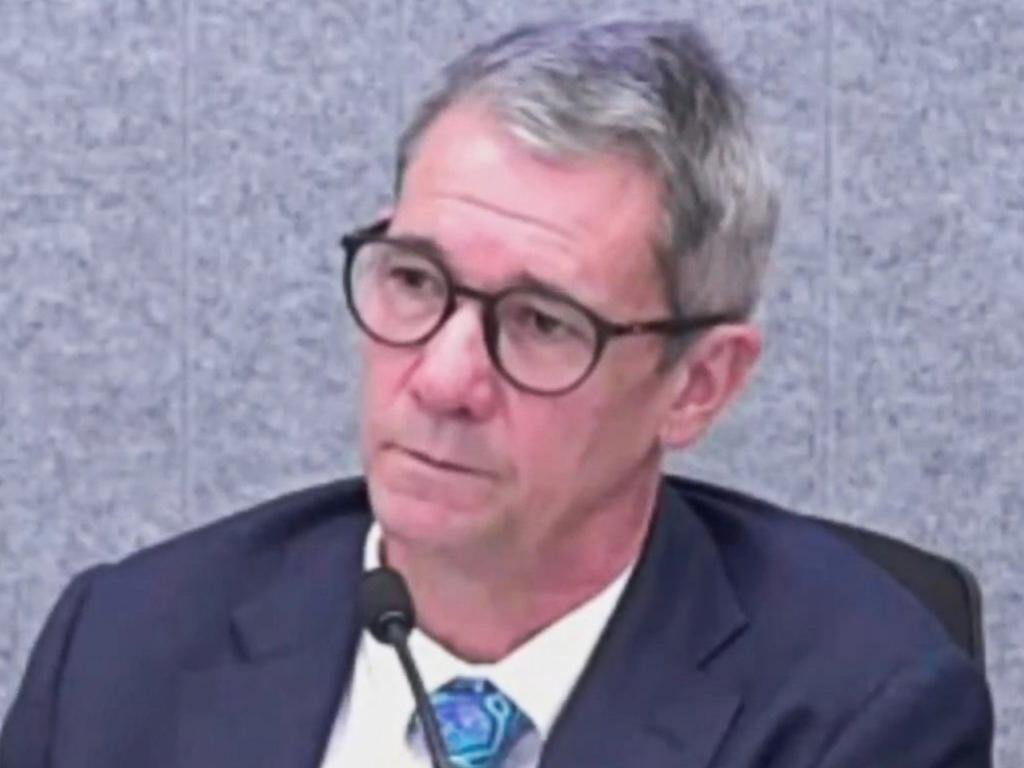Sofronoff inquiry: ACT DPP Shane Drumgold ‘threw his newest junior under the bus’
ACT DPP Shane Drumgold’s willingness to abuse the trust of loyal, innocent members of his team has been blasted as ‘shameful’ by inquiry chief Walter Sofronoff.
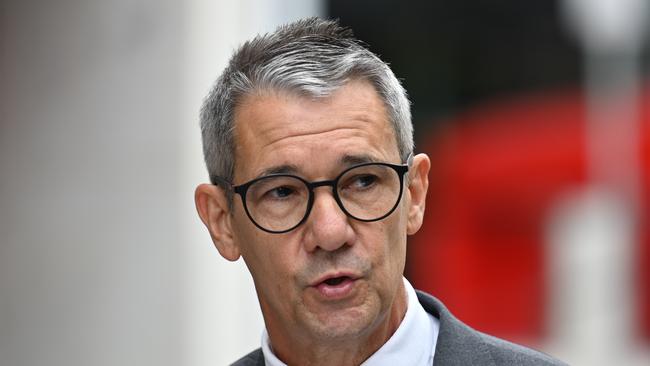
Spare a thought for Shane Drumgold’s hidden victims – the trusting junior staff who unwittingly did the chief prosecutor’s dirty work only to be thrown under the bus as his web of lies unravelled.
Drumgold’s betrayal of his loyal team ranged from directing an inexperienced young lawyer to swear a false affidavit to blaming an office administrator for wrongly releasing a document under Freedom of Information laws when he ordered her to do it.
Inquiry chief Walter Sofronoff KC was clearly infuriated by Drumgold’s willingness to abuse the trust of innocent members of his team, labelling it “shameful” and an abuse of his authority.
In one case, the chief prosecutor desperately wanted to keep a police document out of the hands of the defence, claiming it was subject to legal professional privilege, even though police had not claimed it was.
Drumgold asked a senior lawyer in his office to draw up an affidavit advancing the false claim of legal privilege but his plan was “foiled” when that lawyer queried the source of the information.
Drumgold – who was the only source – told her not to worry.

“Drumgold’s reaction to this correct insistence upon the application of the law was to sideline the too-knowledgeable lawyer and to procure a youngster to do the job,” Mr Sofronoff said.
Mr Drumgold emailed the most junior member of his team, setting out the wording for the affidavit he required the young man to swear. “The affidavit that Mr Drumgold required his fledgling staff member, newly admitted, unknowingly to swear did not comply with rule 6711 [of Court Procedure Rules].”
Mr Sofronoff found in doing so, Drumgold “egregiously abused his authority and betrayed the trust of his young staff member to whom he owed a duty to be a mentor and role model”.
In one of the more scathing findings, Mr Sofronoff states: “I emphasise that I find not the slightest fault in anything that the junior lawyer did … He received a direct instruction from the highest authority in the office to prepare an affidavit using particular words and he had no reason to think that the DPP himself was abusing his position of trust and authority.
“For as long as the profession has existed, it has had a tradition of mentorship. The more senior barristers lead and teach junior barristers both by instruction and by example. This was the converse; Mr Drumgold preyed on the junior lawyer’s inexperience.”
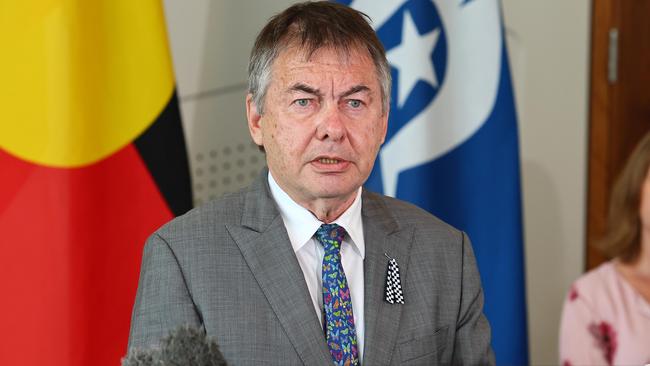
Another betrayal occurred when Drumgold decided to release to The Guardian newspaper a letter he had written to ACT police chief Neil Gaughan complaining about the conduct of investigators in the case. The Guardian journalist emailed an FOI request, which was picked up by the DPP’s information officer, Katie Cantwell.
Her role in the DPP’s FOI process was purely “a co-ordination capacity”. She had never been involved in the making of a decision whether to release requested information and had no knowledge of the intricacies of FOI releases.
When she received The Guardian request, she emailed Drumgold, attaching the FOI request and expressing her view that “surely any document sent regarding this would be subject to legal/professional privilege?”
When Drumgold sent her his letter to the police chief, she asked whether “this is the letter you are happy for me to release under FOI to the Guardian?”
Drumgold responded 15 minutes later: “I am happy for it to go out.” Ms Cantwell emailed the letter to the journalist that evening.
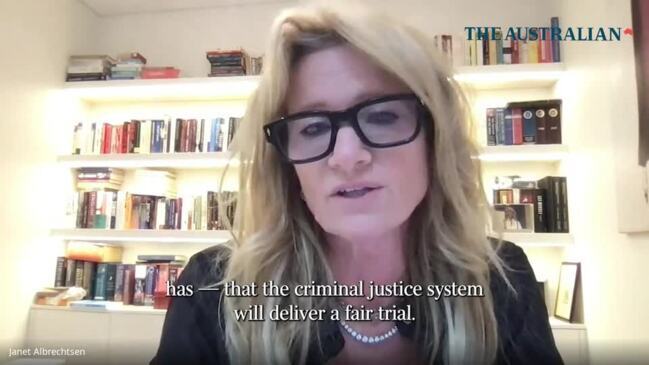
Drumgold had authorised the release of the unredacted letter containing the DPP’s suspicions of impropriety against named police officers and senator Linda Reynolds without any of the consultation required by law and within four hours of it being considered.
He later apologised to the police, saying the failure to consult them was “due to an internal communication and training issue”.
He noted he had “arranged further training” for Ms Cantwell.
Drumgold told Mr Sofronoff that Ms Cantwell may have wrongly interpreted his email as telling her to send the letter “without further consideration of other relevant FOI considerations”.
He claimed it was Ms Cantwell’s responsibility to consider a host of issues such as whether disclosure of the information would be in the public interest or whether consultation with third parties, such as the AFP, would be required and whether parts should be redacted.
Mr Sofronoff rejected Mr Drumgold’s explanation as false.
“It is also clear to me that he has shamefully tried falsely to attribute blame to Ms Cantwell who, in every respect, performed her duty assiduously and in accordance with instructions that she was bound to follow from the director,” Mr Sofronoff found.
Ms Cantwell did not “interpret” Mr Drumgold’s email incorrectly. He had given her an unambiguous verbal instruction to her to release the unredacted letter and never directed her to redact any names or to consult anybody, Mr Sofronoff said.
More Coverage




